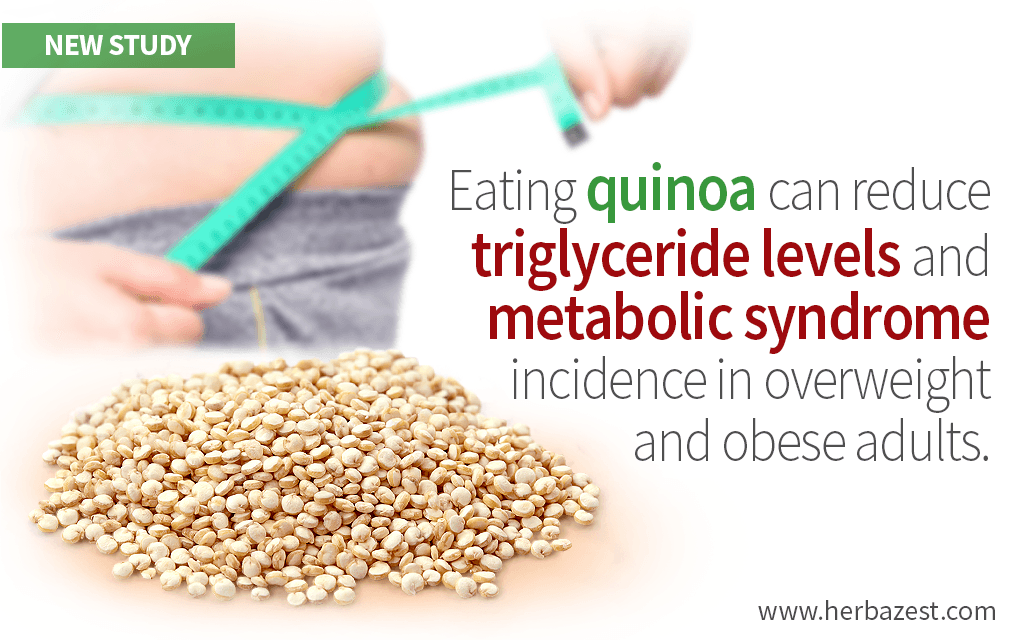It has been several years since quinoa started making headlines in the health-oriented literature. Due to its nutritional richness, it has been linked to a number of health benefits, despite the scarcity of scientific studies.
Several previous trials have shown promising results of the effects of this pseudo-cereal on reducing cholesterol and triglyceride levels.1,2 However, its potential benefits for alleviating other risk factors of metabolic syndrome have not been extensively studied.
The purpose of this trial was to investigate the effects of quinoa on body composition, lipids, hormones, and nutrient intakes in overweight and obese adults.
The Study
This clinical trial was conducted by researchers from La Trobe University in Melbourne, Australia. They published their discoveries in the Current Developments in Nutrition journal.
To compare the effects of different quinoa doses over a 12-week period, 50 overweight and obese adults were divided into three groups:
Treatment group 1 received 25 grams of white quinoa per day
Treatment group 2 received 50 grams of white quinoa per day
Control group were instructed to carry on their normal diets and avoid consuming quinoa
Researchers provided instructions on how to cook quinoa and recipe ideas on how to incorporate it into daily meals. They also registered body composition; serum lipids, hormones, and glucose; and dietary intakes.
The Results
Participants in the treatment group 2 showed a significant reduction in serum triglyceride concentration (the average of 1.14 mmol/L at baseline to 0.72 mmol/L after 12 weeks). No notable changes were seen in treatment group 1 and the control group.
This group has also showed a 70% reduction of metabolic syndrome prevalence, as opposed to a 40% reduction in treatment group 1 and no significant reduction in the control group.
Additionally, no changes in body composition, nutrient intake, and cholesterol levels were seen in either of the groups.
What Does this Mean?
The results of this study show that daily consumption of 50g of quinoa reduces serum triglycerides in overweight and obese participants. It also lowers the prevalence of metabolic syndrome.
Because triglycerides play a key role in the development of cardiovascular disease, approaches to decrease their levels are key for populations at risk. Eating quinoa to lower triglyceride levels and reduce metabolic syndrome's prevalence is a simple and inexpensive intervention worth considering.
Other herbs that are beneficial for people with high triglycerides are bananas, kale, millet, and wheat groats, also known as bulgur.
Sources
- Current Developments in Nutrition, Quinoa Seed Lowers Serum Triglycerides in Overweight and Obese Subjects: A Dose-Response Randomized Clinical Trial, 2017
Footnotes:
- International Journal of Food Science and Nutrition. (2014). Metabolic parameters of postmenopausal women after quinoa or corn flakes intake – a prospective and double-blind study. Retrieved December 1, 2020 from https://pubmed.ncbi.nlm.nih.gov/24344670/
- Food Science and Technology. (2012). Use of cereal bars with quinoa (Chenopodium quinoa W.) to reduce risk factors related to cardiovascular diseases. Retrieved December 1, 2020 from https://www.scielo.br/scielo.php?pid=S0101-20612012000200005&script=sci_arttext







